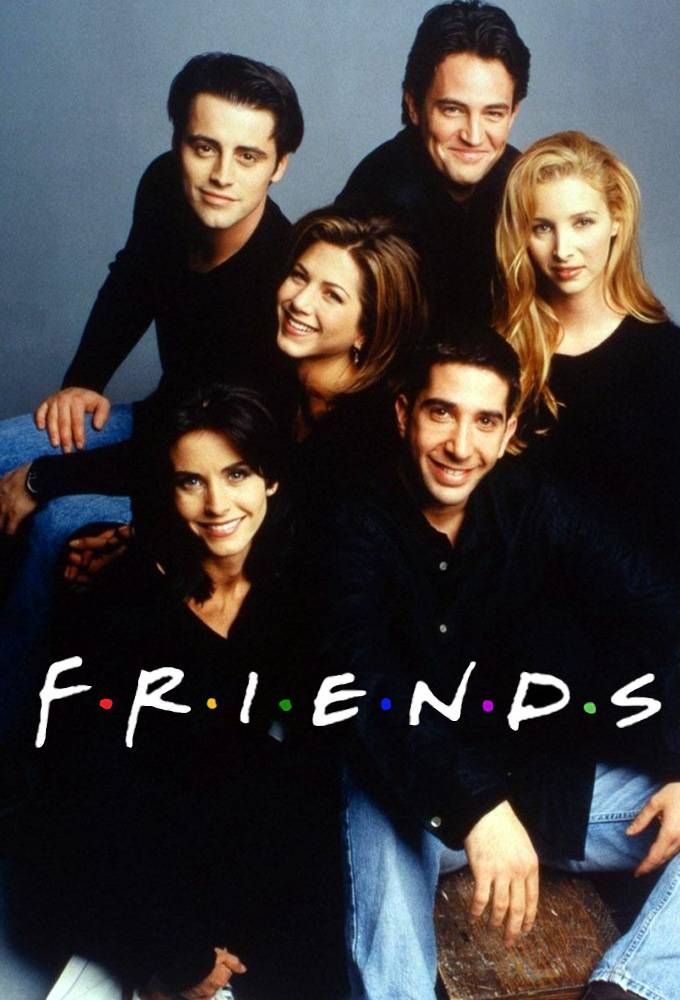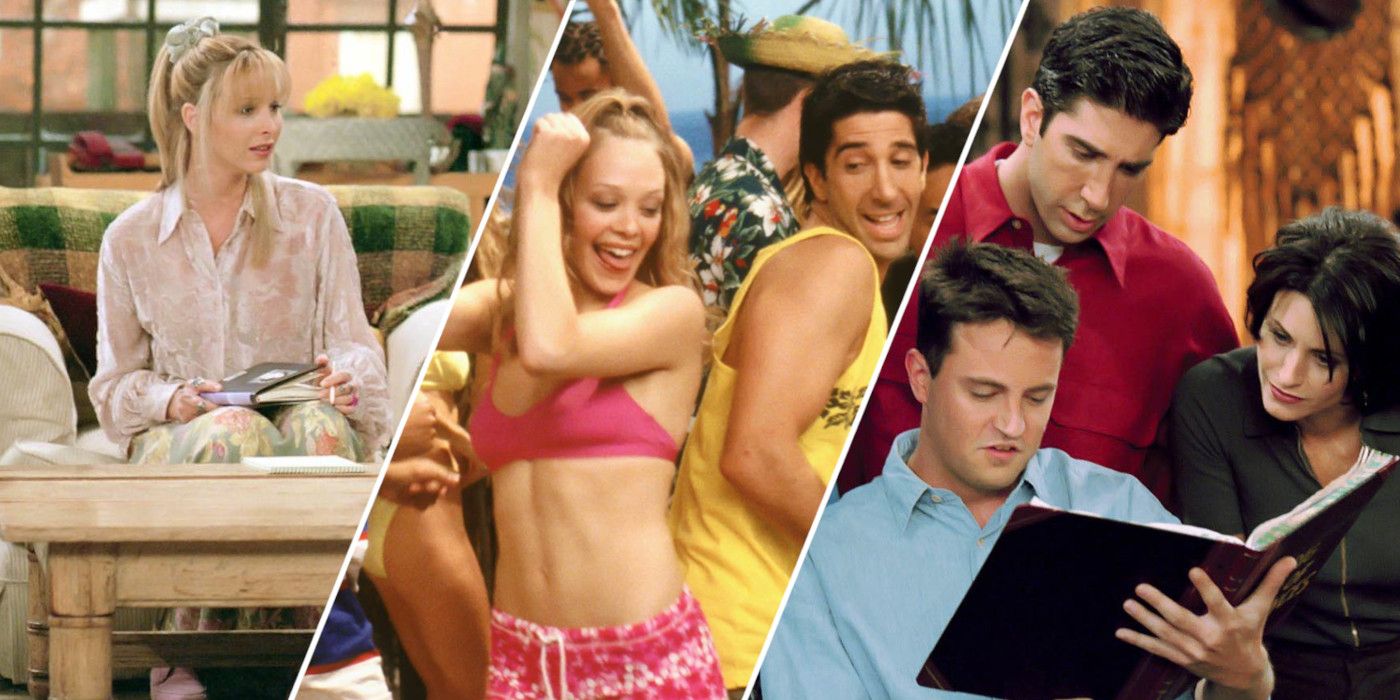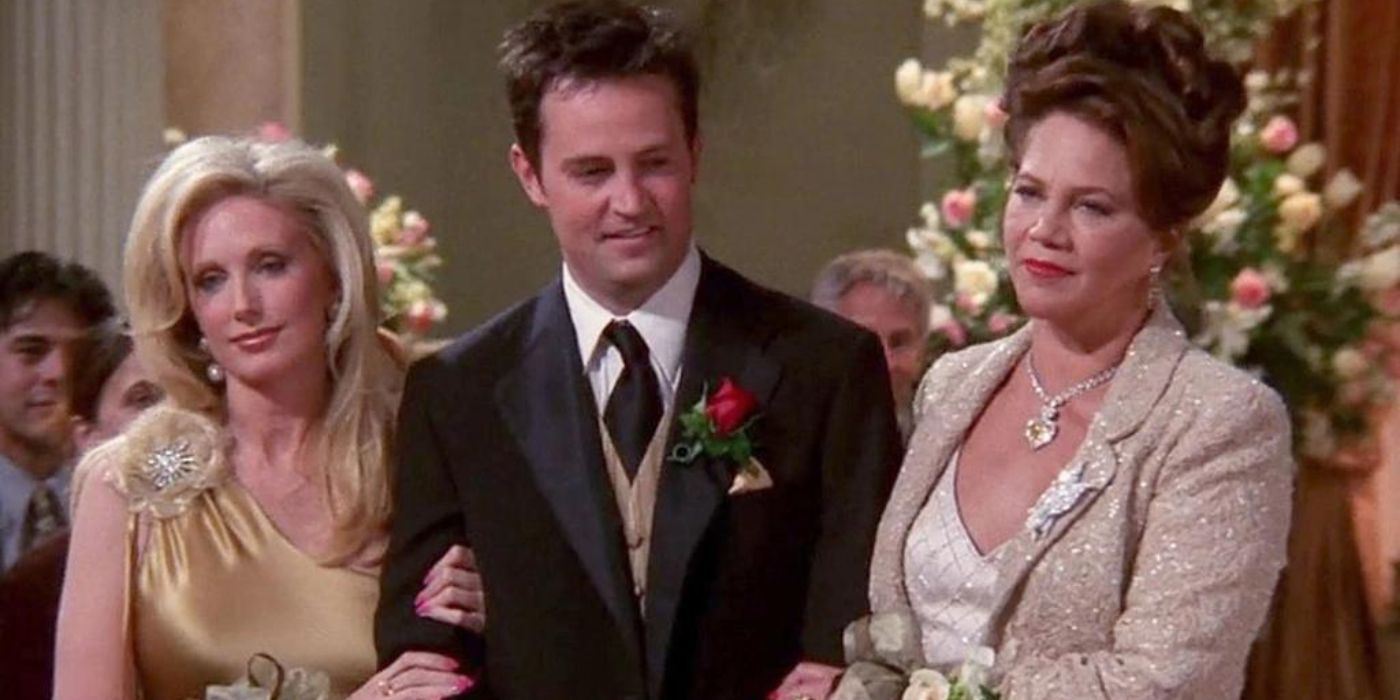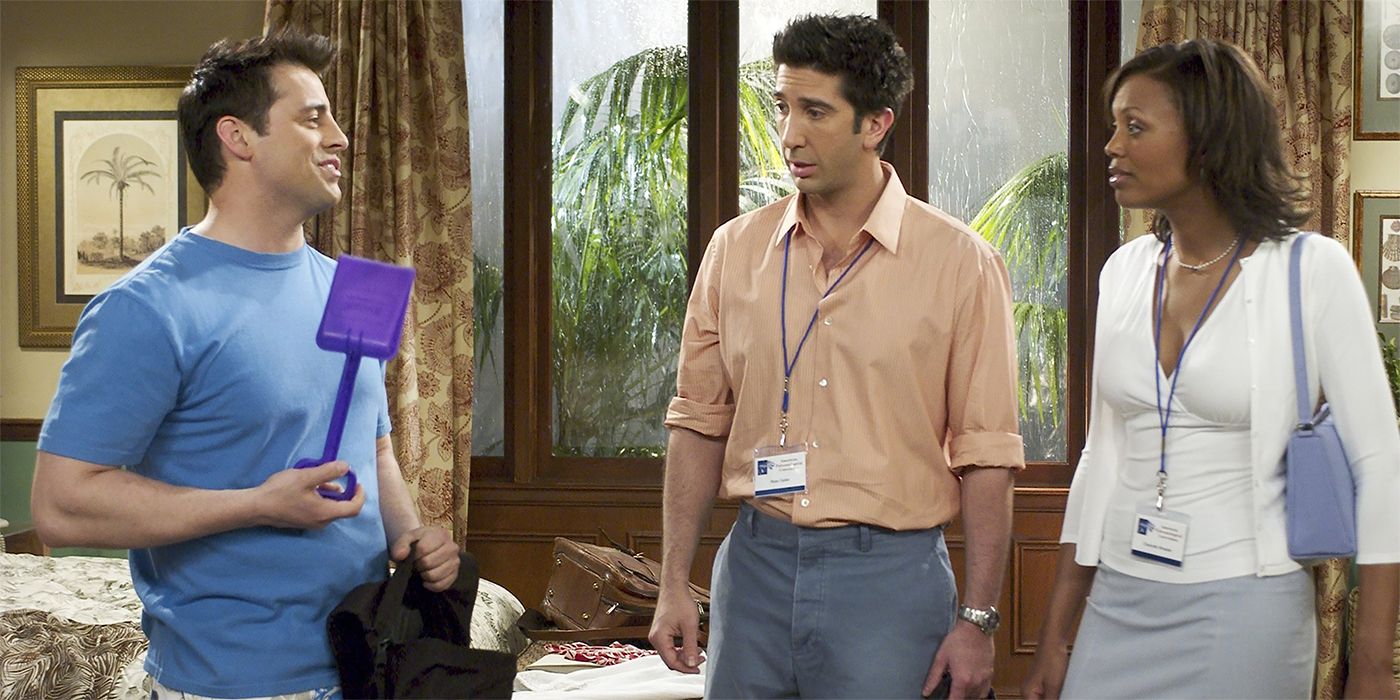The Big Picture
-
Friends
‘ legacy lives on through iconic moments and characters, but its outdated humor and lack of diversity are glaring issues. - Problematic portrayals of gender and sexuality in
Friends
highlight its regressive nature despite its cultural impact. - The show’s failure to evolve with the times raises questions about its lasting relevance and the impact of its controversial content.
The legacy of NBC’s Friends has outlasted those of many sitcoms that graced television screens way before and after it. Decades after the emotional finale of the show for which 52.5 million viewers tuned in, the show and its characters continue to rule pop culture, thanks to the show’s fandom that refuses to let the show’s spark die down. Apart from the memes and pop culture references that the sitcom has fostered for years, the cultural impact of Friends has definitely been significant. From Rachel’s (Jennifer Aniston) haircut to Joey’s (Matt LeBlanc) pickup line, a lot of Friends has seeped into the cultural makeup of the world, reaching international audiences everywhere. But despite continuing to find some sort of relevance even today (as evidenced by 2021’s Friends: The Reunion), Friends has become a demanding show to sit through, given how much of it fails to stand the test of time.
Despite being one the highest-watched sitcoms of all time, Friends has not aged well in terms of its highly problematic and politically incorrect remarks and repetitive tropes, making the viewers highly dependable on the likeability of its cast to arrest the audience’s attention. From depending on fat-shaming Monica’s younger self to Joey’s overtly masculine characterization, a lot of Friends fail to impress despite having broken some ground for its time, especially with Monica and Chandler’s decision to resort to surrogacy. Moreover, a lot of the show’s “funniest” tropes might just attract ridicule today. With Ross’s struggle coming to terms with his wife’s lesbianism to the Chandler being gay jokes, the show is largely dented by its regressive undercurrents that overpowered some of the show’s progressive stances. Friends becomes a difficult watch today as it feels like it’s stuck in the time it’s made as a result of the ideas that prevail in the show’s world.

Friends
Ross Geller, Rachel Green, Monica Geller, Joey Tribbiani, Chandler Bing, and Phoebe Buffay are six twenty-somethings living in New York City. Over 10 years and seasons, these friends go through life lessons, family, love, drama, friendship, and comedy.
- Release Date
- September 22, 1994
- Main Genre
- Sitcom
- Seasons
- 10
- Network
- NBC
Treatment of Gender and Sexuality Are Not Strong Suits of ‘Friends’
If one starts counting, there are a lot of things from the show that went on to become iconic. Apart from the obvious fame that came the way of the ensemble cast, which included Jennifer Aniston, Courteney Cox, Lisa Kudrow, Matt LeBlanc, Matthew Perry, and David Schwimmer, a lot of the elements from the successful sitcom reached the pinnacle of modern-day virality. From the orange sofa at Central Perk to Joey’s iconic “How you doin’?”, there’s a lot to remember the show by. Thankfully, the same cannot be said about the more problematic aspects of the show. As all things go, sometimes the bad things don’t stick.
The characters were hard-wired with inherently problematic stances on gender and sexuality. Often times, these stereotypical portrayal would later inspire more erroneous depictions in future sitcoms. For instance, Matt LeBlanc’s portrayal of Joey as a dumb but handsome and charming male figure who never misses a chance to sexualize any woman that he comes across shouts all kinds of red flags on a rewatch. Contrarily, Chandler’s toned-down masculine portrayal qualifies him to be the butt of homophobic jokes in the world of Friends. Let’s not even touch the fact that Ross — who is apparently the most educated of the lot — has the hardest time digesting his ex-wife’s sexuality.
‘Friends’ Constantly Misgendered Chandler’s Father
The show hit a homerun with its problematic jokes when it came to the transphobic remarks made towards Chandler’s father, Charles Bing (Kathleen Turner). Moreover, the character was referred to as a “he” — an error acknowledged by co-creator Marta Kauffman. Nearly three decades later from the start of the show’s run, the jokes that were thrown towards Chandler to mock him as a result of his father being transgender hit the hardest blow on the show’s credibility. Finally, a cis woman playing the role of a transgender isn’t praiseworthy for the show’s attempts at giving representation. To be fair, not everything the show did was negative. The eleventh episode of the second season “The One with the Lesbian Wedding” was one of the first instances of same-sex marriage being portrayed on mainstream television.
‘Friends’ Lack of Diversity Is Well Known at This Point
On a deep dive, the show reveals myriad problems that become glaring mistakes as per 21st-century creative standards. Friends‘ lack of diversity is an accepted and acknowledged one, with even David Schwimmer having called it out. Apart from a few characters, including Aisha Tyler‘s Charlie Wheeler, the show lacked majorly when it came to presenting a diversified set of actors and characters. Tyler became the first Black with a recurring role in Friends in the show’s penultimate season.

10 Underrated ‘Friends’ Episodes That Deserve a Lot More Love
Even popular shows have underrated episodes.
Gender Norms Are Reinforced Heavily in ‘Friends’
Pivoting back to the show’s handling of gender reveals other cracks as well. Monica’s obsession with cleaning and cooking may be just as problematic as her mother’s indifferent treatment of her when compared to that received by Ross — the male progeny of the Geller household. It’s somewhat obvious why Ross has the hardest time believing that his son will develop a liking for a Barbie doll as opposed to something more “manly” like a G.I. Joe figurine in “The One With the Metaphorical Tunnel.” His exchange with Sandy (Freddie Prinze Jr.), the male nanny Rachel hires in “The One With The Male Nanny,” is an exposé of how Ross can easily understand the ways of functioning of dinosaurs but cannot fathom that men can be equally sensitive beings.
From rampant sexism to the belittling of intelligence, the creative crimes that Friends has committed through its ten-year successful and remarkable run are aplenty. Compared to the many peaks that the show has achieved in terms of its cultural impact, Friends has also suffered many nosedives considering the errors that have prevailed in the blueprint of the sitcom. Regardless of whether the interest will dip for first-time watchers who take a risky step into the lives of six friends in thriving New York of the ’90s, Friends tends to become a tough watch once the initial magic wears off.
While many among the cast and crew have come forward to humbly accept the errors that were made in the past, it’s doubtful whether the acknowledgments will make up for the problematic ideas propagated by the ’90s cult sitcom. For many reasons, Friends has been a force to reckon with when it comes to the impact it has left on pop culture. For as many reasons or more, it will find itself struggling to retain relevance as soon as the nostalgia starts waning. Maybe, it is time to ask, “Could Friendsbe any more difficult to watch than it already is?”
You can decide for yourself. Friends is available to stream on Max in the U.S.



